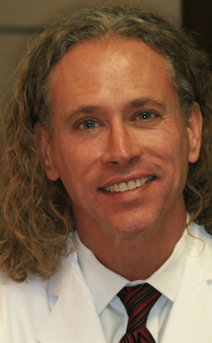 Charles Runels, MD
Charles Runels, MDEvery Man & Woman is Sculptor and Painter of the Body-Temple
Louis Zamperini |
Talks about "Pain is Nothing"I wish you could have been with me last Saturday (September 17, 2011) at Battleship Park in Mobile, Alabama. After being stranded in a raft on the Pacific ocean for 47 days, Louis Zamperirni washed onto the shore of an island---where he suffered immediate imprisonment and torture by the Japanese. Last Saturday, I heard him talk about his ordeal. Of everything I heard him say, the thing I considered most was what he said about pain. Seems pain represents more than a nuisance, it also represents a moral and philosophical delima. So, when I have the chance to listen to someone who did more than their share of suffering, I listen carefully to what they say about pain. Here's a video that I made (I'm sorry, I was far in the back of the room, so it's difficult to see) where Mr. Zamperini answers the question about how he handled the pain.
Watch the video, then keep reading… So, did you hear what he said about the physical torture, "pain is nothing…"
As soon as he said that, I remembered a line from the Old Man and the Sea (Hemingway--as an ambulance driver in the same war--saw his share of pain as well). In the story, the old man, struggling with bleeding hands to pull the fish closer to the boat, thinks to himself, "Pain is nothing to a man." But, pain is something--it hurts or else it wouldn't be pain! So, what do these "real men" mean when they say, "pain is nothing" and how does this relate to being healthy? I think the answer can be found in one of Oswald Chambers' books (who also happened to be a chaplain in the same war). Chambers said there are three reasons for suffering, 1) pain for doing something wrong, 2) pain for doing something good, 3) pain for reasons we just do not know. The 3rd category seems the one that brings philosophical debate, but the first 2 seem agreeable in most philosophies. We know that some suffer for doing wrong. And, we know that some suffer for opposing evil and disorder--they suffer for doing right. These who suffer for right are the innovators and the warriors (Galileo "condemned to hell" by the Catholic church for finding the moons that revolved around Jupiter, Nikola Tesla by the scientist of his day for his ideas about AC current, the soldier or policeman of every age who sacrifices to protect, the researcher infected by the disease she hopes to conquer). If you think about what made Mr. Zamperini's story remarkable: he suffered horrible pain for doing a great thing; and the great pain is part of what defined his actions as great. So, how do these ideas about pain relate to health? If you go for a walk, and you leave the comfort of your home for the heat, or the cold, if you become short of breath lifting weights or walking on the treadmill, you're not suffering like a soldier in a prison camp, but you do know less comfort than if you simply sit and watch the TV. But (and this is the key) your pain develops from the effort to do something good--create and maintain a healthier body. And so, for the healthy, if you ask them, the pain of exercise and right habits become "nothing." If you wake up with a headache from alcohol, or have a dullness of mind from hours in front of the TV, then your suffering is from actions leading to something less healthy. So, the common idea: pain is nothing in that it is not the deciding factor about what to do. When the Japanese offered Louis Zamperini relief from his pain if he would read a propaganda script on the radio, he chose pain rather than contribute to the tyranny he opposed. But, when he spoke of the pain in his life from too much alcohol (after the war) and how his wife was about to leave him--then pain was somthing--it was pain from his destructive actions, and he quit drinking. In the end, pain is "nothing to a man" when deciding the thing to do. Pain is only something to tell you that you're actually doing something. What the doing accomplishes for loved ones--good or bad--that is everything to a man. I'm grateful and indebted to men and women like Louis Zamperini for whom "pain is nothing" and right actions are everything--on the shoulders of such stand the greatest accomplishments of civilization. Here's the exciting part: I'm sure you know people for whom "pain is nothing." Arlington cemetery is full of them. But, look a little closer, you'll see them at work, at the gym, and perhaps at your breakfast table tomorrow morning. It gets better-- Go do the right thing today--even if it's not to save the world. Just do something good. If you do, I promise, you will hurt and the hurt will be proportional to the good. Then go find one of those people for whom pain is nothing, tonight, in your mirror. Other TempleRepair ToolsLaw of Health: 10 Essential Steps to Glorious Health & Miraculous Healing If you haven't already, make sure you stay tuned by subscribing to updates by entering email address:
Peace & Health,
The Temple Repairman™ |
